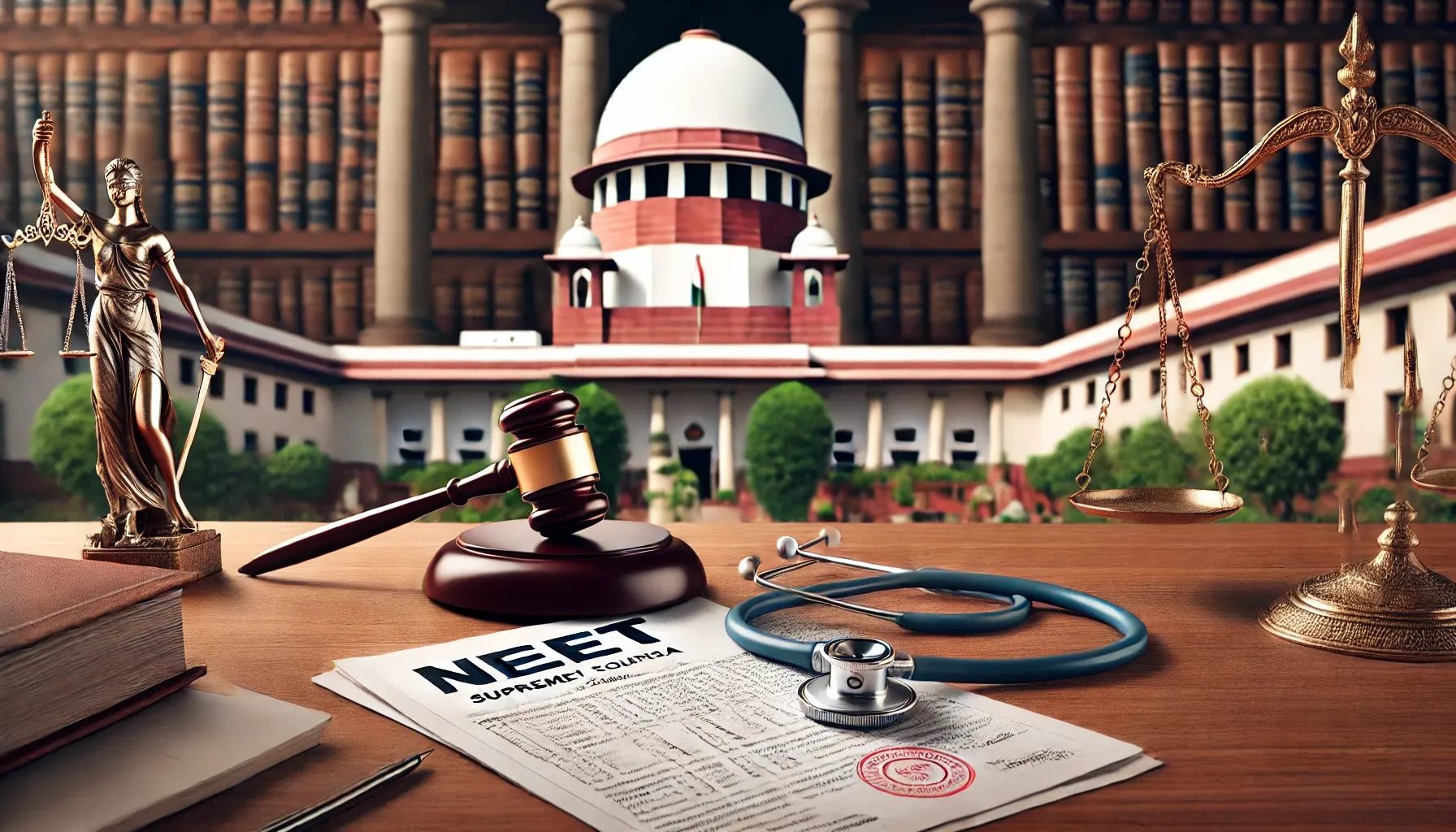The Supreme Court upholds the NEET qualification requirement for Indian students seeking MBBS from foreign institutions, reinforcing the need for eligibility criteria to practice in India.

On February 19, 2025, the Supreme Court of India upheld the Medical Council of India’s (now the National Medical Commission’s) regulations that mandate students wishing to pursue MBBS from foreign medical universities to qualify for the National Eligibility-cum-Entrance Test (NEET). The Court dismissed the challenge to these regulations, reinforcing the importance of a standardized eligibility process for students seeking admission to medical courses abroad. The petitioners, who sought an exemption from the NEET qualification requirement, were denied the relief. This ruling has significant implications for Indian students planning to study medicine abroad.
Key Aspects of the Ruling
- NEET Mandate for Eligibility Certificate:
The Supreme Court upheld the requirement that students must qualify the NEET exam in order to obtain an Eligibility Certificate from the National Medical Commission (NMC) for pursuing an MBBS degree from a foreign university. The Court stated that this requirement ensures a fair and transparent procedure for granting eligibility. The regulation was introduced by amendments in 2001 and 2018. - Court’s Justification on Regulations:
A bench of Justices BR Gavai and K Vinod Chandran noted that the eligibility regulation was in line with the Medical Council Act. It concluded that the regulation did not conflict with the enactment and that it was neither arbitrary nor unreasonable. The Court emphasized that the NEET qualification requirement ensures that students seeking to practice medicine in India meet certain minimum standards. - Dismissal of the Exemption Request:
The petitioners argued for a one-time exemption from the NEET requirement, but this request was denied. The Court stated that any candidate who chose to pursue a medical course abroad after the regulation came into effectcould not seek an exemption. “Obviously, with open eyes, after the amended regulations came into effect if any candidate chose to obtain admission in a foreign institution for pursuing a course leading to a primary medical qualification, they cannot seek for an exemption from the regulations”, the Court observed. - Legal Basis for the Regulation:
The Court dismissed the argument that the regulation should have been amended through a change in the Medical Council Act itself. Instead, it upheld the regulation issued by the Council under Section 33 of the Act, which empowers the Council to set the eligibility requirements for admission to medical institutions abroad. The Court found that the regulations were not in violation of the Constitution or the Act. - Historical Background of the Regulations:
- In 2001, the Indian Medical Council Act, 1956 was amended to incorporate sub-sections (4A) and (4B)under Section 13. These provisions required students to obtain an Eligibility Certificate from the Medical Council before enrolling in a foreign medical institution.
- In 2018, a further amendment to the Foreign Medical Institution Regulation, 2002 mandated that candidates wishing to pursue undergraduate medical courses abroad must qualify for NEET. This was introduced as Clause 8(iv).
- Outcome of the Case:
The Court dismissed the petitions challenging the regulations, concluding that the requirement of qualifying NEETdid not restrict students’ rights to practice medicine outside India. The regulations were deemed appropriate for ensuring that those pursuing medical degrees abroad were eligible to practice in India.
Case Title: ARUNADITYA DUBEY VERSUS MEDICAL COUNCIL OF INDIA AND ANR.
Attachment:





